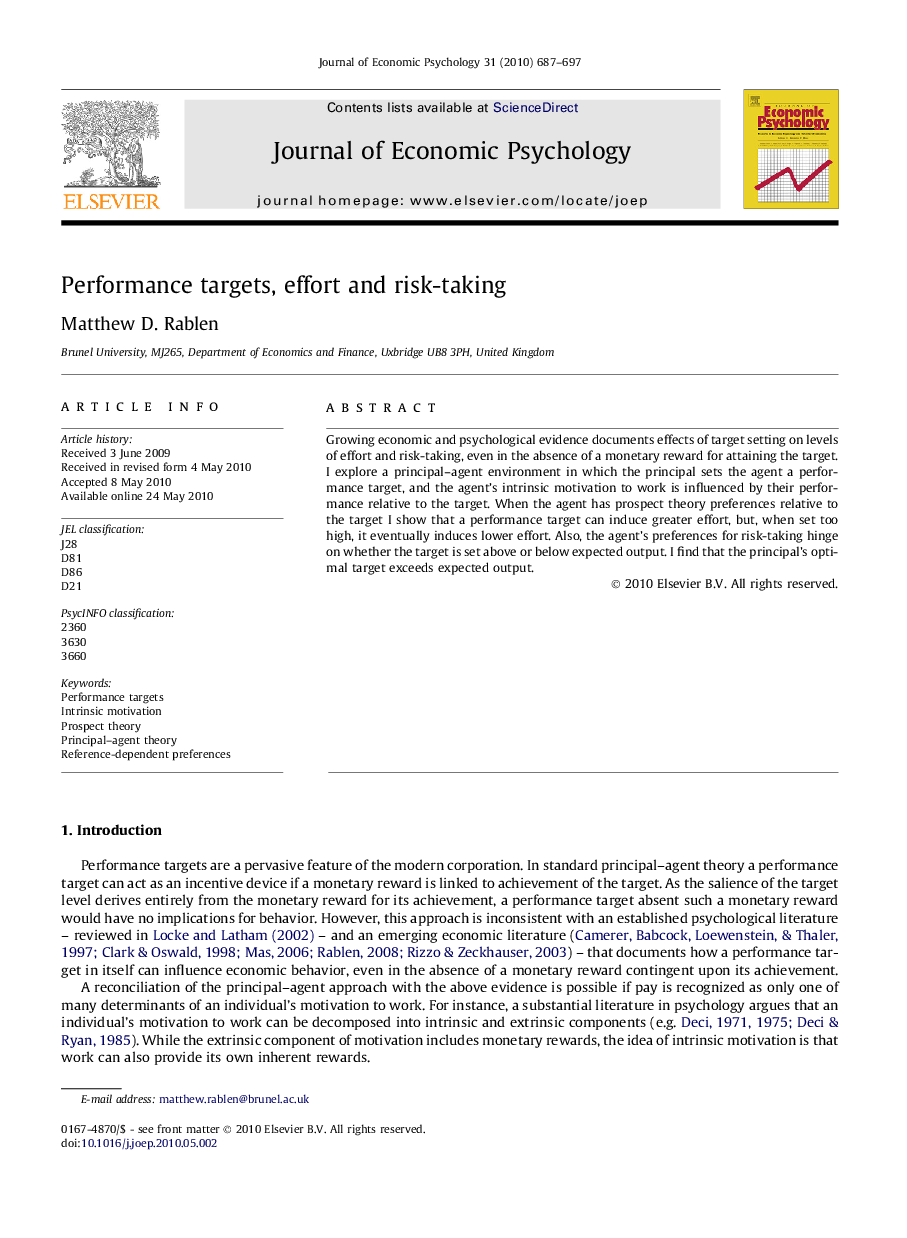| Article ID | Journal | Published Year | Pages | File Type |
|---|---|---|---|---|
| 885288 | Journal of Economic Psychology | 2010 | 11 Pages |
Growing economic and psychological evidence documents effects of target setting on levels of effort and risk-taking, even in the absence of a monetary reward for attaining the target. I explore a principal–agent environment in which the principal sets the agent a performance target, and the agent’s intrinsic motivation to work is influenced by their performance relative to the target. When the agent has prospect theory preferences relative to the target I show that a performance target can induce greater effort, but, when set too high, it eventually induces lower effort. Also, the agent’s preferences for risk-taking hinge on whether the target is set above or below expected output. I find that the principal’s optimal target exceeds expected output.
